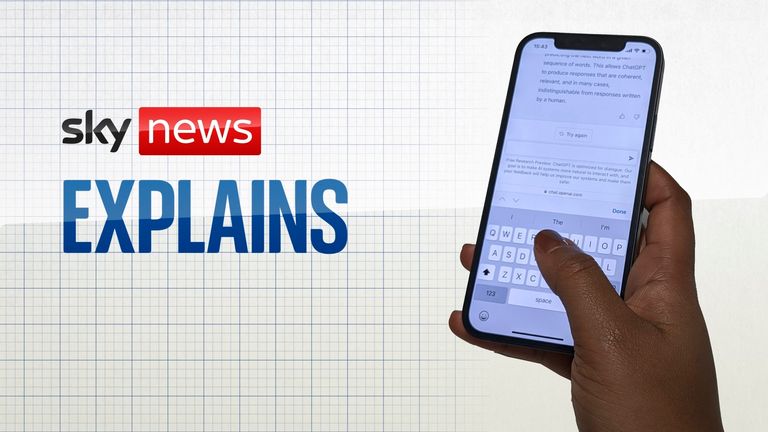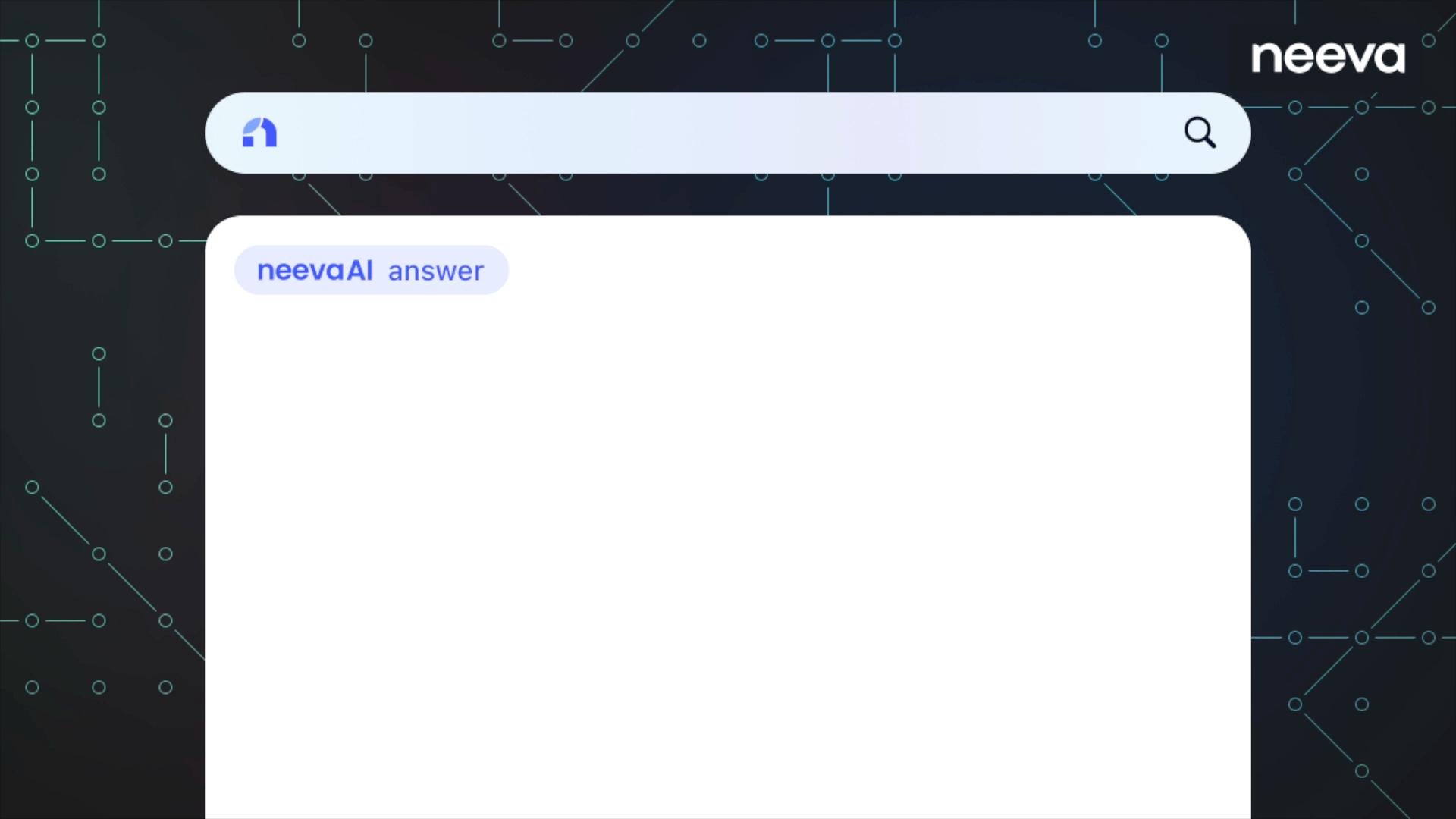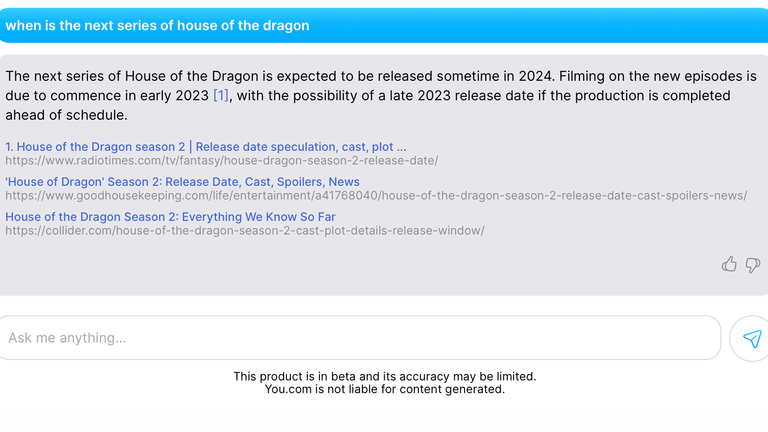It’s hard to imagine the Internet without Google.
The tech giant has become so synonymous with searching the web that it’s become a verb — we don’t look it up, we”Google it”.
Google ends 2022, as it ends every year, as the most visited website in the world. Its estimated share of the search engine market is 92% (MicrosoftBing’s is its closest competitor at 3%).
On the surface, it might not seem like the landscape to change, but don’t be so sure.
launch of Chat GPTan artificial intelligence chatbot, threatened to disrupt how people preparing for interviews, reporter writes storyand child doing homework.
It was trained on reams of text from the internet to respond human-like to almost any prompt, sparking speculation it could pose a threat to Google.
Search engines are ready to bet big on AI
The New York Times reported that Google founders Larry Page and Sergey Brin have been called back to help add ChatGPT-like features to their search engine launched more than 25 years ago.
Google boss Sundar Pichai reportedly wants to accelerate the company’s plans to use conversational AI in its products and services, going far beyond a chatbot pretending to be a tennis ball (Seriously, we tried it’s really Strange).
Microsoft’s multibillion-dollar investment in ChatGPT creator OpenAI increases the likelihood that it can find its way into products like Office (welcome back, Clippy and friends?) and – yes – Bing.
The potential AI arms race was predicted by former Google advertising czar Sridhar Ramaswamy, who wanted to use what he learned during his 15 years at the company to stay ahead of this potentially game-changing trend.
“We’re at an interesting moment,” he told Sky News from his home in California, where he co-founded start-up search engine Neeva.
“Large language models and AI provide unprecedented insight, sift through things and provide answers like never before. This is a very exciting era of search — and I think it’s going to be disrupted in multiple ways across multiple companies.”
How artificial intelligence can change the way you search the web
Among these potential disruptors are You.com, a search engine that launched in California (elsewhere) in 2021 and added a bot called YouChat in December; and Neeva’s own new artificial intelligence.
Launched in the UK in October, Neeva aims to provide informative and reliable search results, not driven by user data and advertising.
Its AI features will be added for UK users in February. AI scours the web for information, generates a single written answer to the query, and – like YouChat – cites each of its sources for the user to learn more about.
And it works in real time, which means it stays up to date on current events and provides references to its admittedly small group of 1 million monthly users.
“It gives search the ability to be more flexible than ever before,” Ramaswarmy said, arguing that the advertising model he led at Google — which accounts for the majority of Google’s revenue — needs to be challenged.
“The whole search experience becomes just about getting you to click on an ad,” he said.
“But there’s a bigger reason – the obsession with internet advertising has also steered the Google algorithm in an engagement-focused way, so you’re seeing more and more ‘Made for Google’ sites juggling how to get to the top game.”
More like this:
How artificial intelligence inspired Hollywood’s new favorite killer robot
“I fell in love with my AI girlfriend – it saved my marriage”
But is all this good?
Neeva’s commitment to being ad-free comes at a price – £5.49 per month, or £44.99 per year.
Most of its 600,000 users are on its free tier, which limits them to 50 searches per month.
Unlimited search through powerful AI isn’t a particularly cost-effective business model, with OpenAI CEO Sam Altman acknowledging that the computational costs of running ChatGPT are “mouthwatering.”
Dr Andrew Rogoyski, from the University of Surrey’s Institute for Human-Centered Artificial Intelligence, said the infrastructure required to run such a service at Google’s scale would be enormous.
“There are ways to simplify conversational AI in a way that we can afford,” he told Sky News.
“AI getting bigger and more energy-intensive is going in the wrong direction — it’s pushing it into the hands of big organizations.”
But any search engine seeking to leverage artificial intelligence needs to consider more fundamental challenges.
“incorrect or ridiculous”
Like ChatGPT, NeevaAI is a large language model, which means it was trained on a lot of information.
But OpenAI admitted its answers could be “too lengthy” and “incorrect or nonsensical”.
“It doesn’t know right from wrong, it doesn’t know the authority of gossip,” Ramaswarmy said.
Of course, it’s one thing for nascent ChatGPT to make a mistake, and quite another if a company like Google launches a commercial product with similar failures. As Microsoft found out after its 2016 chatbot was taught to say offensive things.
“Conversational AI is very believable, certainly for a short time, and it improves over time, but because it’s so believable and plausible, people aren’t necessarily going to challenge it,” Rogoyski said.
Are we really ready for a change?
It’s one thing to see the transformative potential on the internet, but quite another to see through it.
Elon Musk’s tumultuous takeover of Twitter hasn’t upended people’s habits the way experts predicted it would, Potential rival Mastodon sees rapid user growth Stand still.
Ramaswarmy acknowledges the difficulty of sparking an internet “mass movement,” but sees ChatGPT’s breakthrough as evidence that a “platform shift” is coming.
“Think about how we’ve seen Microsoft, Nokia and BlackBerry disappear from the mobile world, leaving Google and Apple to dominate,” he said.
“It feels like this is one of these confrontational moments.”



